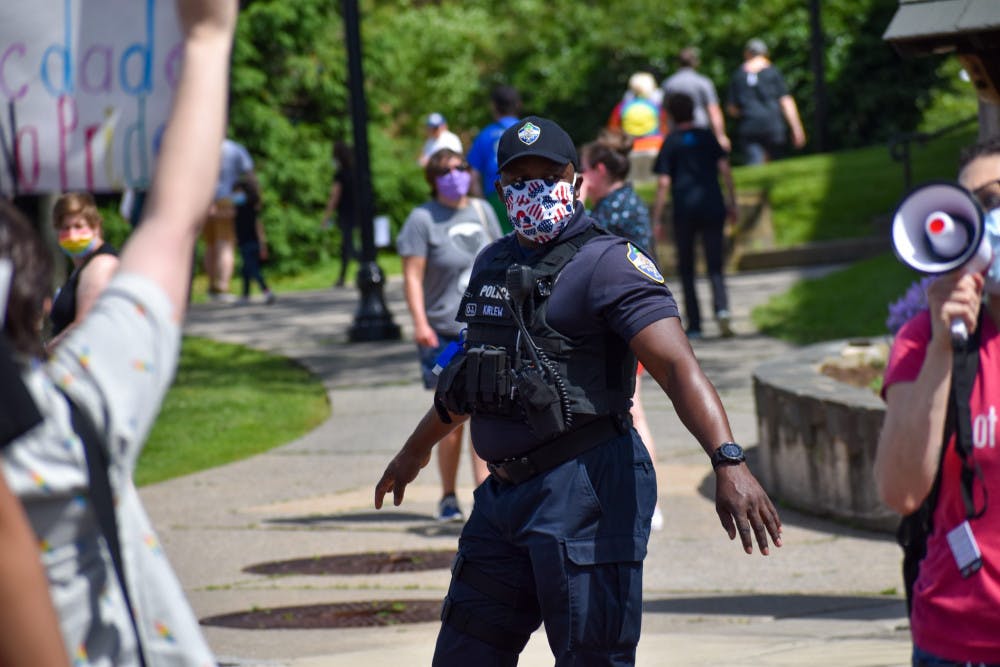The South Orange Police Department (SOPD) hired seven new police officers, some of whom are women and people of color, the South Orange Board of Trustees announced on Sept. 29.
The new hires include two women, bringing the total number of women in the department to three. Three of the new officers are people of color, bringing the total number of officers of color to 22, according to South Orange Village Board of Trustees member Donna Coallier. The force has 23 white officers.

Sgt. Richard Lombardi of the SOPD said the more diverse hiring was neither intentional nor accidental.
Coallier said the SOPD wants to reflect the diversity of the South Orange community.
“As you can imagine, we are pleased with this [diversity],” Coallier said. “This will be the most diverse police department South Orange has had in a long time.”
Coallier works with the SOPD as Chair of South Orange’s Health and Public Safety Committee. She said in a phone interview that although the new hires would bring the total number of police officers to 45, that number has come down from 57 total police officers in previous years.
Coallier described this scaling down of the SOPD over the years as “making [the SOPD] more efficient.”
“Those seven are, in essence, necessary hires,” she said. “[The SOPD] was paying a lot of overtime at lower hiring… and we need to make sure our residents are safe.”
Lombardi said the new officers were hired by South Orange on the condition that they make it through the “rigorous” Essex County Police Academy training program.
South Orange is a civil service town, according to Lombardi, meaning that priority for hiring goes to military veterans and residents of South Orange.
Coallier said the “first priority” in hiring for the SOPD are people who live in the local community of South Orange.
The decision to hire more officers comes amid national political and social movements pushing to reform police departments.
“Defunding the police means different things to different people,” Coallier said. “We have crime, traffic violations, and we need our police department to be here to keep the community safe.”
She added that the governance of South Orange was in favor of “reframing” how the SOPD polices the community. This includes providing more transparency around officers who have committed acts of misconduct on the job.
Pat Linfante, the director of Public Safety at Seton Hall, said the new police hires will help to make the Village safer.
“One can reasonably assume the increase in staff will serve to make the Village of South Orange safer for everyone, including our students,” he said.
Coallier highlighted an initiative in partnership with Dr. Juan Rios, director of the Master of Social Work program at Seton Hall, which would expand the existing SOPD with social work programs and targeted training for police officers.
“The partnership that is currently occurring places the social worker at a high level,” Rios said. “Also, it would work to defragment police culture and [create] an informed public safety approach.”
Rios added that while the social work profession was “stigmatized,” trained social workers could respond to nonviolent social crises, such as homelessness or mental health situations. Rios said he believes this could go a long way toward helping build community relations with the SOPD.
Said Rios,, “We plan to use data-informed practices and training such as racial bias training and mental health response training, not just as a one-off, but embedded within the police culture.”
Marie Leone can be reached at marie.leone@student.shu.edu.





